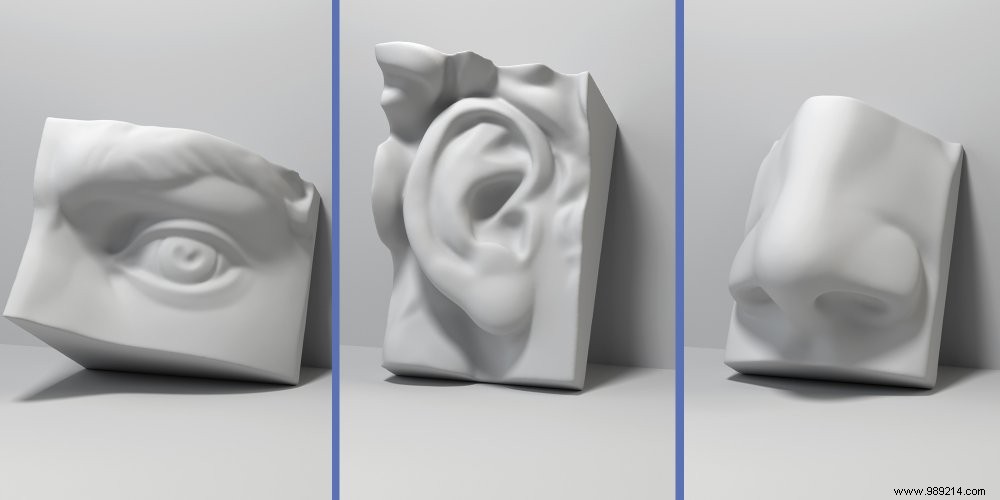 This trio of small "holes" hide substances that disgust us, but that we also secretly enjoy to pick up. Sometimes a bit too strong and not really in the best way. Small development of gestures to banish (and to privilege) for clean ears, nose and eyes.
This trio of small "holes" hide substances that disgust us, but that we also secretly enjoy to pick up. Sometimes a bit too strong and not really in the best way. Small development of gestures to banish (and to privilege) for clean ears, nose and eyes. The "little droppings" in the eyes, earwax in the ears, snot and boogers... These unsavory secretions repel us so much that they push us to polish from the cellar to the attic, and often with the wrong tools, the cavities in which they are housed very warmly. Bad hygiene practices to banish immediately to start again on bases which should however be elementary.
Do not remove make-up at night. It's the best way to dry your eyes. Similarly, contact lens wearers who continue to use them past their expiration date, sleep or shower in them, wet them with saliva, or fail to clean their cases are at serious risk. The worst that can happen to them? Become blind. In short, we do not joke with our peepers.
In the evening, especially if you live in a polluted city or are prone to seasonal allergies, you gently clean them with sterile compresses and a single dose of 0.9% saline solution. In a single passage, we start from the inside (internal angle of the eye) outwards (towards the ear) to avoid bringing back germs and risking clogging the lacrimal sac (meeting place of the tears secreted in the eye level).
At each new pass, we change the compress, and we throw away the saline even if we haven't used everything because it is no longer sterile.
To remove make-up, nothing beats a two-phase product (one aqueous and one oily) to remove all traces of mascara, pencil and other liner without attacking your tear glands.
Regarding the lenses, we respect their precautions for use and those of their cleaning product. Some are only used for a day, others for a few months or even a year, but are all ultimately disposable. Over time, the lens gets dirty, which affects the comfort of wearing and ends up leading after several years to a non-tolerance of the lenses. It is therefore not for nothing that their lifespan is ephemeral (and no, it is not to make you cough up more money at the ophthalmologist and the optician). Their case is cleaned with the cleaning product, not with tap water.
Yes, earwax is not glam. Yet that greasy, waxy, yellowish-colored material that lines your ears like a protective shield. Bactericidal, it contributes to the balance of the local flora by inhibiting the growth of strains of Staphylococcus aureus and Candida albicans. It also serves to protect the ear canal from water, and to trap foreign bodies (dust, insects, etc.) that might want to make it their main residence.
It filters, heats and humidifies the air. No, we are not talking about the latest humidifier from a famous English brand that also makes bagless vacuum cleaners, but about this fabulous organ that is the nose. The very one that houses the less fabulous snot and its cronies the boogers.
Similarly, operating a complete scouring of his nasal cavity (yes, you there with your fingers!) is not necessary and in addition it is, it must be said, a rather filthy practice.
Using a spray solution to thin them and promote blowing is not a bad idea, especially to rid the nasal cavities of dust, irritants and pollen. It is chosen isotonic to simply cleanse, or hypertonic in case of a stuffy nose.
You can also apply a greasy Vaseline-type ointment in a very thin layer at the entrance to the nose for a few days to treat any scabs.
Thanks to Dr Xavier Subirana, Vice-President of the National Union of Ophthalmologists of France (SNOF); to Pr Laurent Kodjikian, President of the French Society of Ophthalmology (SFO) and to Dr. Nils Morel (ENT doctor and President of the National Union of Doctors specializing in ENT and Cervico-Facial Surgery - SNORL).
Read also: